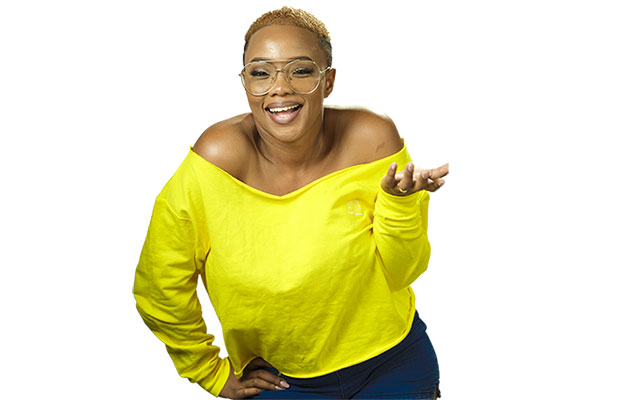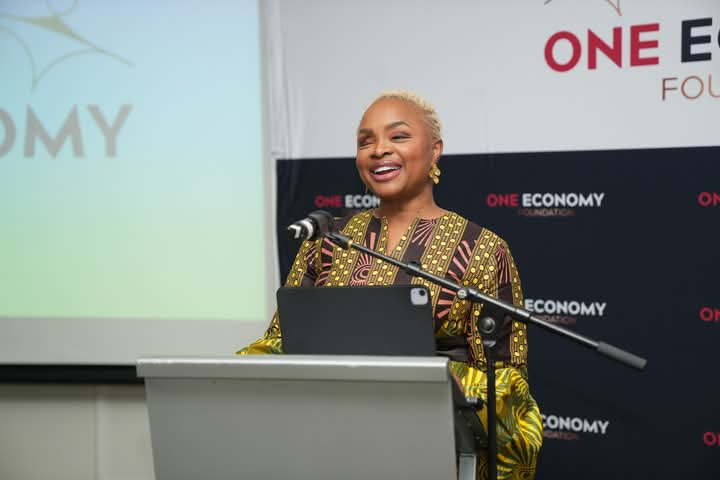Warm, gifted and an all-round accomplished singer – this is Adora, one of Namibia’s leading women in the music industry, and that’s no accident. Born Lilani Kisting, the singer shares her journey with The Weekender and talks about her professional career and personal life, a distinction that sometimes gets blurred through the eyes of her fans.
“Lilani is generally an introverted person, not social… I love being at home most of the time; I’m a sucker for romance,” Adora reveals on who the person behind the artist is. She jokingly adds that she has an affinity for cooking, but a deep hatred for doing the dishes.
Adora is a popular figure – everyone knows the lyrics to her songs and fans lovingly refer to her as the ‘Queen of the South’.
The 29-year-old artist was born at Keetmans-hoop but grew up in various towns, moving from school to school, and the region remains dear to her heart.
Attending primary school at Okahandja and then in Windhoek before being shipped to a boarding school at Omaruru, the vocalist made a return to the capital to finish her school career at Hochland High School.
One of five children, Adora is the second-last born and grew up in a Christian home as her father is a pastor. Describing herself as shy and compassionate, she says if she could have 10 hours to herself, she would stay home and watch series all day.
Separating her true personality from her public persona has always been a struggle. “It took me approximately nine years to almost master splitting the character and the responsibility – being Adora and being Lilani,” she says.
When she sings in church, she prefers being called by her real name as Adora is her alter ego and has a different form of expression, she says. “Adora is loud and out there, and I’m the complete opposite. I wish I could be Lilani more often. I don’t like dressing up or doing my hair and make-up every day,” she says with a laugh.
She sees Adora and Lilani as two different entities, but it is difficult for the public and her fans to separate the two. But, she adds, her parents’ support has helped her juggle. “It took me a while to accept I am this famous person and get the grip of what the expectations are when being famous.”
Adora’s career was launched by her father, Paul, who she says threw her into the spotlight when she was about six years old. As a pastor, her father was involved in various youth projects and made use of his daughter’s God-given talent. “He taught a song to the a youth choir at Okahandja and I had to do a solo with them. That was my first ever appearance in that field,” she reminisces.
Her father, she says, has always been a strict mentor, especially regarding music. The ball then started rolling for the young singer, who often sang at church events or shows.
“At first, I didn’t know I wanted to be a full-time artist, but then opportunities unfolded.”
She had her first studio recording in 2006 along with her brother and father, who made up the family trio. She mentions her father was always present at her rehearsals, no matter what show she performed at, and his presence shaped her in her career. Adora adds that her field is no mistake as her family is a musical one, complete with choirs and brass bands. She refers to her father as her go-to guy whenever she’s in need of support and guidance.
When her career finally kicked off, Adora mentions one of the challenges was being a young, upcoming artist trying to get her album out. “In almost all cases, it didn’t work out because the producers would be interested in me. One thing I promised myself is that I would never sell my dignity to achieve something in life.”
At the time, she didn’t understand the ins and outs of strategising and marketing. Being anti-social, she says, also limited her by not networking enough or lacking contacts and advice from people.
Breaking the stigma that ‘female artists will always be inferior to male artists’ was another struggle. “I was part of the artists breaking that stigma. It was a tough thing to overcome.”
Her Nama heritage presented its own challenges as she had to compete with artists who had bigger fanbases. “My people are not on social media a lot; they are not very vocal and usually just listen to the Damara/Nama radio station. It counted against me at some point in my career. I’m glad I could look beyond that and build the bridge between the mindset of my people and the reality out there,” she says, adding the bridge is not yet complete as other artists from the south are also adding their own bricks to pave the way for upcoming artists in the Nama community.
After losing out at the 2017 Namibian Annual Music Awards – a moment the singer deems unfair – she learnt that some musicians are always on the losing end when it comes to big awards. Encouraging young artists, Adora notes that although the awards can elevate you, careers do not start and stop there.
Adora was recently part of a cultural roadshow targeting the Hardap and //Karas regions and was at home in the south. Posts about her trip garnered great response from fans on social media. Melintha Fleermuys posted “we are definitely following. May God continue to bless you”, while Innocent Lita Buthelezi said “amazing Adora, move on, we are behind you”.
The songstress mentions that Nama people are musical and this is an advantage for artists in this community as it is instilled from a young age. “I’m so proud of my culture. I will take a bullet for my people from the south, especially in the music industry. I’ve always fought as a Nama artist and tried to break the barriers for my people in all the environments where I am present.”
The southern queen says the morals and values from her culture have shaped her as an artist and can be felt through her music. Not seeing herself as a big musician, she hopes to always be the voice of the south. “I will proudly carry the south on my chest, shoulders, back or wherever I go.”
The singer is delighted to travel to small towns regularly to perform for audiences who don’t always have the opportunity to see big stars. Having recently been at the Karibib Expo, fans were pleased to see her dance and sing like only she can.
After the expo, Julia Khito posted on Face-book: “I’ve heard about you. Never seen you perform live. Adora, you were amazing. You did not disappoint. Thank you so much. Karibib and I fell in love with you. You’re a true professional”.
– @jonathan_sasha on Twitter; @jonathan.sasha on Instagram
Stay informed with The Namibian – your source for credible journalism. Get in-depth reporting and opinions for
only N$85 a month. Invest in journalism, invest in democracy –
Subscribe Now!










